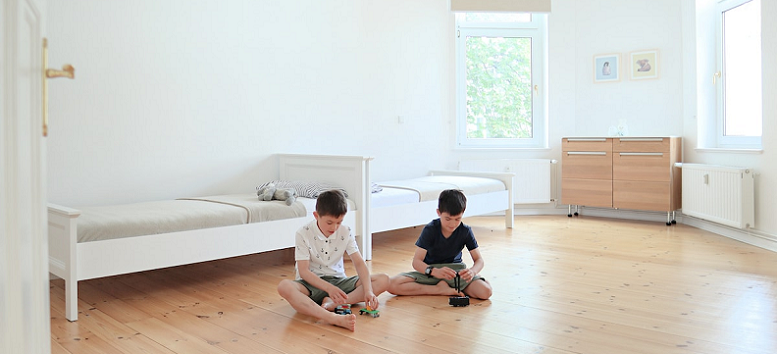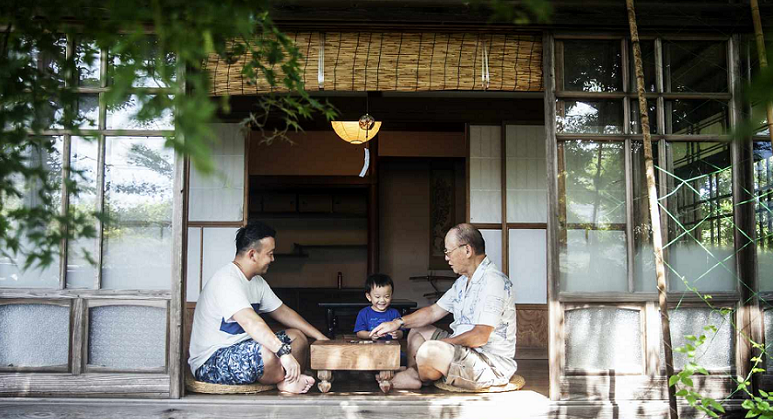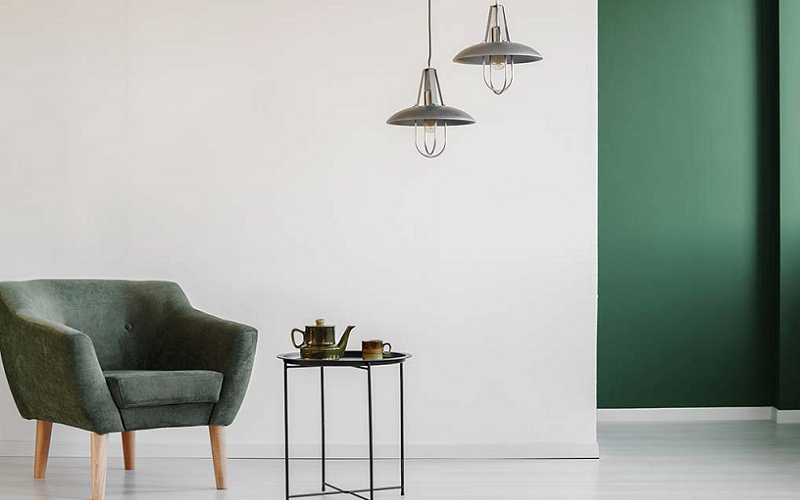Minimalism is a lifestyle that emphasizes simplicity, purpose, and intentionality in all aspects of life. It involves reducing clutter, simplifying possessions, and focusing on what truly matters. While this lifestyle can lead to a range of benefits such as improved mental clarity, increased focus, better organization, and financial savings, it also comes with its own set of challenges.
These can include difficulty in letting go of possessions, resistance from family and friends, adapting to a different lifestyle, finding a balance between minimalism and enjoying life’s pleasures, and maintaining the minimalist lifestyle. In this article, we will explore both the benefits and challenges of minimalism in daily life and provide practical tips and insights for those looking to embrace this lifestyle.
What Is Minimalism?
Minimalism has gained immense popularity in recent years, with many people opting for a simpler and more organized way of living. The concept of minimalism emphasizes the importance of living a fulfilling life with less, focusing on what truly matters and freeing oneself from the clutter of material possessions.
While minimalism offers numerous benefits such as improved mental clarity, increased focus, and financial savings, it also comes with its own set of challenges such as letting go of possessions, adapting to a different lifestyle, and finding a balance between minimalism and enjoying life’s pleasures. This article aims to explore both the benefits and challenges of minimalism in daily life and provide practical tips for those who wish to embrace this lifestyle.
Benefits of Minimalism
Minimalism is a lifestyle that emphasizes the importance of living a fulfilling life with less. This approach to life is gaining popularity as people look for ways to simplify their lives, reduce stress and distractions, and focus on what truly matters. There are many benefits to living a minimalist lifestyle, including improved mental clarity, increased focus, better organization and productivity, more meaningful relationships and experiences, and financial savings.
Improved Mental Clarity and Reduced Stress
Minimalism can greatly improve mental clarity and reduce stress by decluttering and simplifying our environment. With fewer possessions and distractions, our minds are able to focus on what is truly important, leading to improved mental clarity. This also eliminates the overwhelming feeling of having too much to manage and reduces stress levels.
A minimalist lifestyle can help reduce decision fatigue and allow us to focus on what is truly important, leading to greater happiness and a sense of peace. By embracing minimalism, we can create a calming and peaceful environment that supports our well-being, reducing stress and promoting mental clarity.

Increased Focus on What Is Truly Important
Minimalism allows us to focus on what is truly important by decluttering and simplifying our lives. With fewer possessions and distractions, we are able to direct our attention towards the things that matter most to us, such as our relationships, experiences, and personal growth. By focusing on what is truly important, we are able to live a more fulfilling life and prioritize our time and energy on the things that bring us joy and purpose.
This increased focus on what is truly important also leads to better decision making, as we are able to clearly evaluate our priorities and determine what is most important to us. Minimalism helps eliminate the pressure to constantly consume and accumulate more possessions, freeing up time and financial resources for the things that truly matter. Overall, minimalism supports a more intentional and fulfilling life by allowing us to focus on what is truly important.
Better Organization and Increased Productivity
Minimalism can lead to better organization and increased productivity by decluttering and simplifying our environment. With fewer possessions and distractions, it becomes easier to find what we need, leading to increased efficiency and productivity. This can also free up mental space and reduce decision fatigue, allowing us to focus on what is truly important and be more productive in our daily tasks.
A minimalist lifestyle can lead to better physical organization, as we are able to arrange our living and work spaces in a way that is functional and streamlined. This can help create a calm and organized environment that supports productivity and reduces stress. By embracing minimalism, we are able to focus on what truly matters and create an environment that supports efficiency and productivity.

More Meaningful Relationships and Experiences
Minimalism can lead to more meaningful relationships and experiences by allowing us to focus on what truly matters. With fewer possessions and distractions, we are able to direct our attention towards the things that bring us joy and fulfillment, such as our relationships with others and unique life experiences. This can lead to deeper and more meaningful connections with others, as we are able to prioritize quality time and experiences over material possessions.
Minimalism can help reduce the pressure to constantly consume and accumulate more possessions, freeing up time and financial resources for the things that truly matter, such as spending time with loved ones and creating memories through unique experiences. By embracing minimalism, we are able to live a more intentional and fulfilling life, rich in meaningful relationships and experiences.
Financial Savings
Minimalism can lead to significant financial savings by reducing the impulse to consume and accumulate more possessions. By embracing a minimalist lifestyle, we are able to focus on what truly matters and prioritize our spending on experiences, relationships, and personal growth over material possessions. This can lead to a reduction in the overall amount of money spent on unnecessary items and result in significant financial savings.
A minimalist lifestyle can help reduce clutter, leading to a more organized and efficient home, reducing the need for storage solutions and further contributing to financial savings. Overall, minimalism supports a more intentional and fiscally responsible approach to life, leading to significant financial savings over time.
Challenges of Minimalism
Minimalism is a popular lifestyle that offers many benefits, but it is not without its challenges. While embracing a minimalist approach to life can bring greater clarity, focus, and contentment, it can also be a difficult and challenging process. From overcoming the temptation to accumulate more possessions to adjusting to a simpler lifestyle, there are a number of obstacles that people may face when embracing minimalism.
Difficulty in Letting Go of Possessions
One of the biggest challenges of minimalism is the difficulty in letting go of possessions. For many people, material possessions have emotional value, represent memories, or serve as security blankets. This can make it difficult to part with these items, even if they are no longer serving a purpose in their life.
It can also be challenging to determine what to keep and what to let go, as every item has a personal significance that can make it difficult to part with. However, it is important to remember that minimalism is not about living without possessions, but about living with only what is necessary and valuable.
To overcome this challenge, individuals may need to shift their perspective and view possessions as things that serve a purpose, rather than sources of comfort or status. By approaching minimalism with a practical and purpose-driven mindset, it becomes easier to let go of possessions and create a simpler and more meaningful life.
Resistance From Family and Friends
Another challenge of minimalism is resistance from family and friends. Minimalism goes against the cultural norm of accumulating more possessions and can be difficult for others to understand or accept. Family and friends may view the lifestyle as unfulfilling, or as a rejection of their values and way of life. This can lead to misunderstandings, disagreements, and even conflict.
To overcome this challenge, it is important to have open and honest communication with loved ones and educate them about the benefits and motivations behind minimalism. It can also be helpful to maintain a positive and non-judgmental attitude, and respect the choices and lifestyles of others, even if they do not align with your own. By fostering understanding and acceptance from family and friends, it becomes easier to embrace a minimalist lifestyle and enjoy the benefits that come with it.

Adapting to a Different Lifestyle
Adapting to a different lifestyle is another challenge of minimalism. Minimalism requires a significant shift in mindset and habits, and can be overwhelming at first. People may struggle with letting go of possessions, finding new sources of fulfillment, or adjusting to a more simplified life.
It can also be difficult to break old patterns and habits, and establish new routines that align with a minimalist lifestyle. However, with time and persistence, these challenges can be overcome. To make the transition to a minimalist lifestyle easier, individuals may need to take small steps, seek support from friends and family, and be patient with themselves as they navigate this new way of living.
Finding a Balance Between Minimalism and Enjoying Life’s Pleasures
Finding a balance between minimalism and enjoying life’s pleasures is a common challenge faced by many people who embrace this lifestyle. On one hand, minimalism emphasizes simplicity, purpose, and intentionality, which can lead to a more meaningful and fulfilling life. On the other hand, minimalism can also lead to a sense of deprivation, and make it difficult to enjoy life’s pleasures and experiences.
To overcome this challenge, individuals must find a balance between simplifying their life and enjoying life’s pleasures. This may involve rethinking what brings joy and fulfillment, and prioritizing experiences and relationships over material possessions.
It can be helpful to be intentional and mindful about the things we bring into our life, and to strive for a balance between simplicity and enjoyment. By finding this balance, individuals can fully embrace the benefits of minimalism while still allowing room for the pleasures and experiences that bring happiness and fulfillment to their life.
Maintaining the Minimalist Lifestyle
Maintaining a minimalist lifestyle can be a challenge in itself. It can be easy to fall back into old patterns of accumulating possessions and clutter, or to become overwhelmed by the pressure to conform to societal norms and expectations. To overcome this challenge, it is important to continually reassess one’s priorities and motivations, and to be mindful of the things that bring value and purpose to life.
Regularly decluttering and simplifying can also help maintain a minimalist lifestyle. Surrounding oneself with supportive and like-minded individuals can provide encouragement and accountability. By being intentional and proactive in maintaining a minimalist lifestyle, individuals can continue to reap the benefits of living with less and enjoy a simpler and more fulfilling life.
Practical Tips for Embracing Minimalism
By following the following practical tips and being intentional and proactive in embracing minimalism, individuals can overcome the challenges and fully enjoy the benefits of this lifestyle.
- Start with decluttering
- Set clear goals
- Take small steps
- Reassess your priorities
- Surround yourself with supportive individuals
- Practice mindfulness
- Regularly declutter

